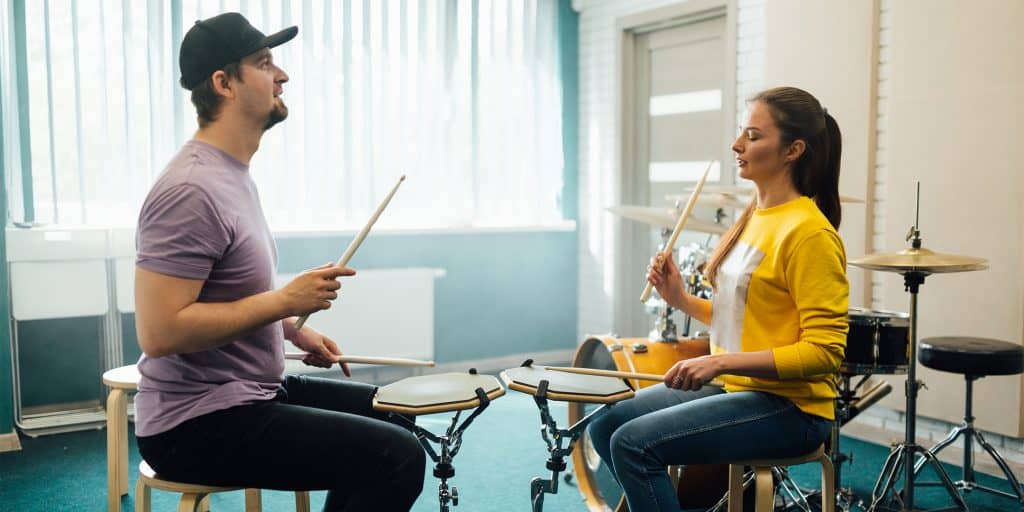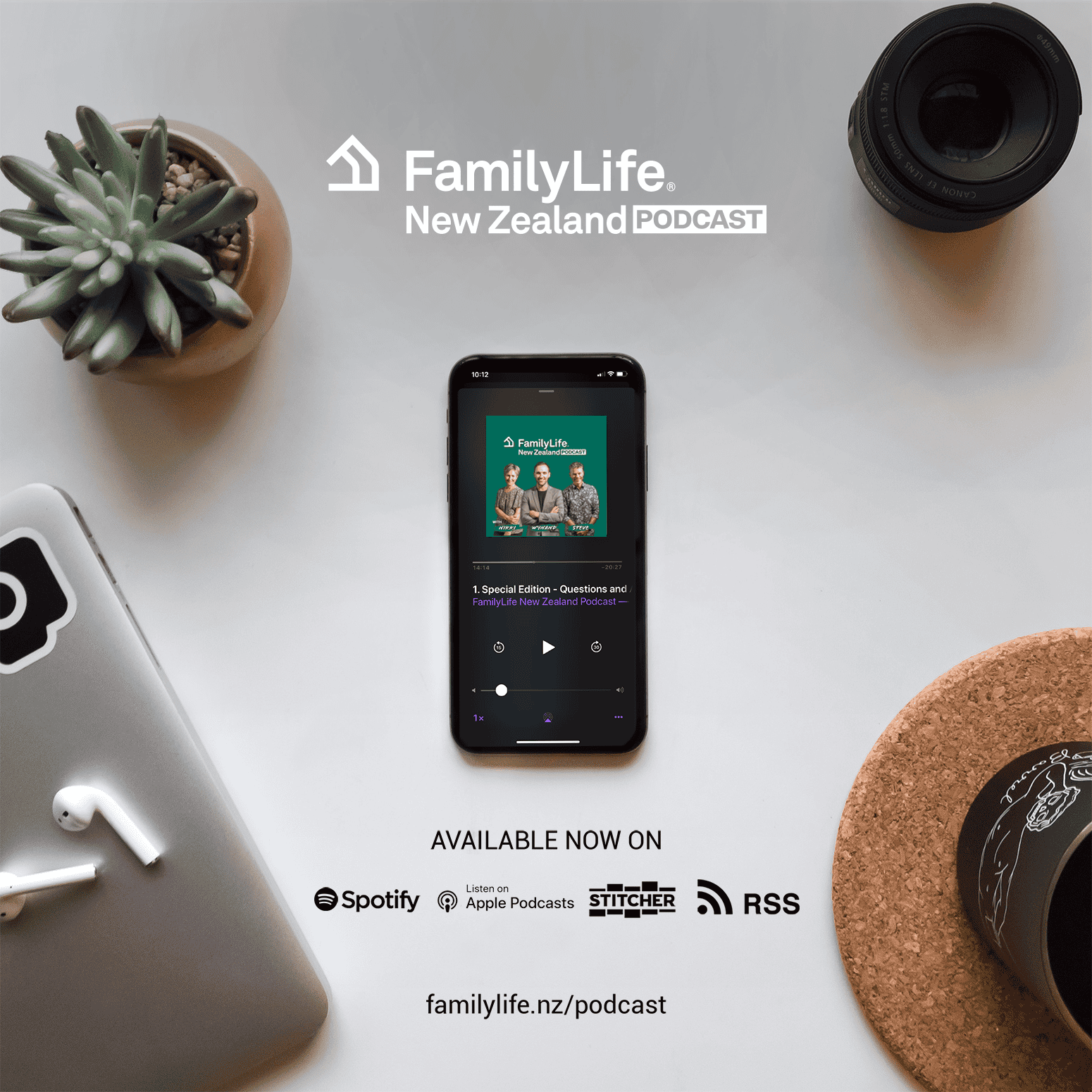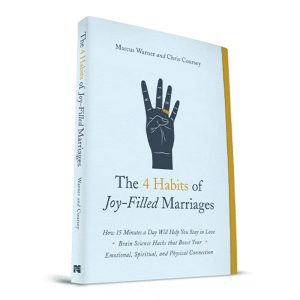The secret to “happily ever after” is finding your soul mate, right? Wrong! Here’s why; and an alternative mindset you may want to adopt.
Relationship investment mindset
Great marriages don’t just happen. Even the best of relationships have challenges. That doesn’t mean you’ve married the wrong person, it simply means you’re married.
You see, many people believe the myth that marriage is all about finding the right partner. They believe that only couples who struggle go for counselling, read marriage books, or go on marriage enrichment weekends. Sure, when couples are struggling they may reach out to these helpful resources or experiences. But we know the most successful couples are those who consistently and intentionally find ways to strengthen their connection. They’ve adopted a “relationship investment mindset”.
Developing a relationship investment mindset may or may not be new information to you. You may already know that it’s good for you to invest in your relationship, but are you actually doing so? Many people know about the benefits of exercise without actually exercising. I was one of those people. I would know what was good for me, without that activity, task, or conversation actually finding a space in my life.
The way to make sure important things become part of your life, is to make sure they become part of your schedule. Some use calendars, others talk about routines, but I’m a musician, so today I’ll run with the word “rhythm”.
Developing a rhythm of relationship investment
If there’s ever a “silly season” in marriage, I think we’re in it. Our wee Gabriella has just reached the 5-month mark and Jonah, well he’s in his “happy-as”, bounce-off-the-walls, “I need it NOW” toddler years. They’re an absolute delight to us, but life sure gets busy.
Just the other day we took the kids out to the park. Gabriella needed to take a nap and Jonah had only one interest at the park; the swing. Mum was walking around trying to get Gabriella to sleep and Jonah was sucking the very last bits of emotional capital out of me with his demands on the swing. I don’t blame him, nor am I upset with him, but I needed a break. So when Ellré came over our way, it was time for a kid swap. She took over the “swing-duties” and I strapped Gabriella into the carry pack to set out on a sleepwalk (no, not me walking in my sleep, though I needed some, but me walking to get her to sleep).
There was a soccer field at the park and I thought it might be a good idea to do 10 laps around the field to lift my mood, get some high-quality oxygen into my bloodstream and of course, provide an opportunity for Gabriella to sleep; who was now happily seated in the front pack on my chest.
“Why 10 laps?”, you may ask. I certainly didn’t jump at the idea at first, but I know exercise is good for me. I don’t always like it, but I like the rewards I get from it. As I got into the walk I reflected on life and things that are generally good for us, but we often avoid.
Doing things that are good for us is often hard to start, gets better as we go and turns into a delight when we start reaping the rewards.
When it comes to physical activity, people don’t wake up overweight, tired, and lazy one day but rather they fall into that state by failing to keep physically active. When you’re in bad physical condition, it’s hard to get fit, but when you’re fit, it’s fairly easy to maintain. Relationships are the same. When we take time to prioritise our relationship, it has a similar effect as going to the gym, taking a walk, or doing some other form of exercise.
Investing in your relationship when it’s going well will build the “muscle” you need for those seasons where you feel distant or simply pulled apart by the demands of life. It’s not about doing the easy things, it’s about doing things that matter and building the relational resilience for when you do need it.
Doing it once may be fun, doing it three times becomes a challenge, but doing it regularly becomes easy and part of your life rhythms.
In music, rhythm keeps all the instruments together. Without rhythm, you’ll only be left with noise. Rhythm has the power to transform noise into music. Not only does rhythm act like the glue that holds everything together musically, but it’s also our guide to help us anticipate what is next.
In life, rhythm helps us do things without having to think about them. If I’m not thinking about the hard things in life, but have conditioned myself to do them regularly, like exercise, then it becomes relatively easy to do – even enjoyable. Plus, the benefits are great!
When we’re figuring out rhythm, it’s often important to stop before we start again. If we’re only thinking about our own rhythm it is relatively easy to change something, but when we’re synchronising our rhythm with someone else we’ll first want to get on the same page. Developing a relationship investment rhythm, or habit, starts with talking to your partner about it. You’ll find that even having a conversation about how you are planning to invest in your relationship will already increase your connection as a couple.
When we establish a rhythm of investing in our relationship, it becomes less of a challenge and more of a delight.
5 Relationship Rhythms
Here are a few ideas of ways you can invest in your relationship to see it grow and some ideas to create rhythms of relationship investment.
1) The annual retreat or planning rhythm
In my opinion, the annual retreat rhythm is probably the best place to start your journey of relationship investment. When you get away as a couple to something like A Weekend To Remember, you’ll spend the time away from your day-to-day life in a space where you can focus on each other and be provided with excellent content and ideas to start implementing straight away. A weekend like this can help you get on the same page and it often sets the tone for “why” you’d want to develop the monthly, weekly, and daily rhythms.
PRO TIP: If you’ve already been to a weekend like this, you may consider an annual planning day or weekend with a resource like “First Things First” by Andy and Nikki Bray to help you set your priorities as a couple for the year ahead.
2) The monthly mentoring rhythm
Setting aside an hour or two each month to have a discussion with an external person or couple is a great way to help create some accountability, encouragement, and have a safe and trusted space where certain challenging conversations can be held in a productive way. This external accountability person(s) may be a trained counsellor, a relationship coach, or perhaps even someone trained as a FamilyLife marriage mentor.
PRO TIP: If you’ve been married for seven years or more and feel like some of the challenges you’ve overcome can help another young married couple on their journey, you may want to consider becoming marriage mentors. Making yourself available once a month to facilitate a conversation for another married couple has great advantages to your own relationship. Plus it’s a way to give back to your community and help to see marriages thrive.
Become a
Marriage Mentor
3) The weekly date night rhythm
Canadian pastor John Burns who’s counselled more than 1,000 couples said: “I’ve never met a couple seeking a divorce who have regular date nights, never!”. A date night can be an extravagant fine dining evening, or it can be a simple walk on the beach with a hot drink. Date nights are a way for you and your partner to prioritise each other. It’s that undistracted time in your calendar each week where the two of you connect and enjoy one another. Life gets busy and we can start to take each other for granted if we don’t prioritise time in our schedule each week where someone else is looking after the kids for a couple of hours and we get to spend quality time together as a couple.
PRO TIP: Setting aside quality time for each other every week is a great way to start, but if you put in the effort to plan some exciting times together it takes your date nights to the next level and recultivates a sense of fun and connection in your relationship. Sign up for some free date night ideas from FamilyLife to get you started or look at a resource like “Simply Romantic Date Nights” to get you started.
Keep the love alive!
4) The daily check-in rhythm
Any musician worth their salt will tell you about the importance of daily practice. Daily practice is far more effective than weekly practice alone if you’re serious about becoming a great musician. If you’re serious about having a great marriage, this daily rhythm is equally important. Set aside time at the beginning or the end of each day to check-in for some quality uninterrupted time together. This may be as simple as 20 minutes to talk about how the day went, what happened that was exciting, what happened that may have gotten either of you down, or sharing what you’re both grateful for.
PRO TIP: The old adage “Couples that pray together, stay together” rings true. Taking time each day to pray together will not only grow you spiritually, but also help you connect better as a couple. Listen to this interview between Anne Muir and Wynand Jacobs about what happens to the brain when couples pray together.
5) The regular input rhythm (study, read, listen to a podcast, attend a group study)
Finally, I suggest you develop a regular rhythm of digesting relationship resources. This is not so much something the two of you do together, although it may be, but more about spending time developing your own mind so you bring a better, healthier, and more intentional approach to the relationship. Maybe you subscribe to a weekly podcast, or perhaps you read a book a month or join a regular study group.
PRO TIP: Someone once said that writing is the “doing” part of thinking. Picking up the personal habit of journaling is not only a great way to unwind at the end of a day and get your mind organised, but it also serves as a place for you to recollect the things you are learning. Think about how you can show up as the best version of yourself in your relationship. Write it down, and then act accordingly. Your spouse will appreciate the new you.
Subscribe to the FamilyLife NZ Podcast
Discover your rhythm
Make those relationship investments consistently when it’s going well. It will build strength and resilience into your relationship for when you really need it. It fortifies the connection and creates a “bank” that you can draw from when life (and marriage) gets difficult. You don’t need to necessarily move mountains in your relationship, but rather find a useful rhythm.
These five rhythms can become part of your healthy relationship routine. You may start by implementing one idea and then build momentum over time. If you’re feeling ambitious, you may schedule in all five rhythms for the year. The point is that you start somewhere. Make your relationship a priority and invest the time, energy, and focus that will help you get your groove back!.
What rhythm of relationship investment will you adopt into your life today?
This article was originally written for Manna Christian Stores’ community site.










